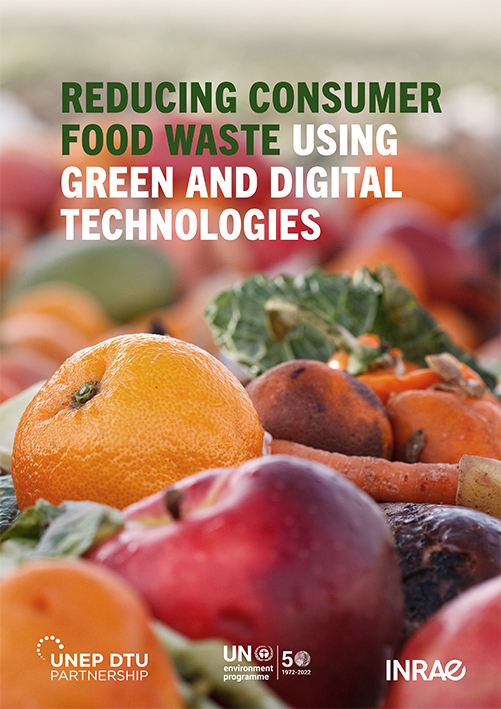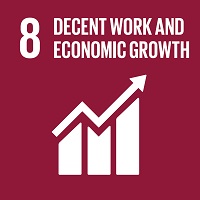This project aims to Support countries in harnessing green and digital technologies to reduce food waste at consumer level; contribute to the attainment of the SDGs and climate goals; support countries in Building Back Better from the COVID-19 pandemic.
Project report
 Downloads:
Downloads:

Listen to the podcast “Preventing food waste with tech and policy”
Food waste exacerbates our triple planetary crises of climate, nature and pollution. One-third of the food produced for human consumption gets lost or wasted, costing 2.6 trillion USD annually.
Green and digital technologies are increasingly being used to reduce food waste at consumer level, including in storage, packaging, pre-treatment, portion control, compost, traceability, and supply-demand matching. This offers huge business opportunities and could accelerate the transition towards an Inclusive Green Economy and Sustainable Consumption and Production, in the course of Building Back Better.
This project brings together different knowledge groups of UNEP for an integrated approach cutting across Economic and Trade Policy, Food and Food Waste, Consumer Information, Sustainable Lifestyles, and the International Resource Panel (IRP). This is combined with case studies of 5 cities in 5 regions, including:
- Bangkok (Thailand), led by Regional Office Asia and the Pacific.
- Kampala (Uganda), led by Regional Office Africa.
- Belgrade (Serbia), led by Regional Office Europe.
- Bogotá (Colombia), led by Regional Office Latin America and the Caribbean.
- Doha (Qatar), led by Regional Office West Asia.
- Diagnosing the food waste problem in five cities
Working with local authorities to develop urban food waste baselines, accompanied by a survey to understand the causes and drivers of household food waste, including COVID-specific impacts.
Supporting food waste measurement by applying and contributing to the UNEP-led “Food Waste Index”.
Undertaking local policy analysis and stakeholder mapping to understand existing policies, measures and practices that have been tested or implemented to address food waste, and the wider policy framework that affects food waste indirectly.
- Understanding different enablers
Based on the diagnosis, analyzing different enablers (technological options, economic incentives, behavioral interventions, informational tools, investment, etc.) and successful business models; proposing a tailored intervention package to address food waste issue at consumer level.
- Engaging with target groups for change in policy, practice and behavior
Devising strategies of engaging critical food behavior actors in each locality; translating related evidence into easily accessible communication materials in local languages; developing engagement and dissemination strategies and identify partnerships for scaling up impacts.
Download a one-page summary here.
Project Partners:
Share this
Focus area: Business Models and Markets, Climate Planning and Policy
Country / Region: Colombia, Global, Qatar, Serbia, Thailand, Uganda






